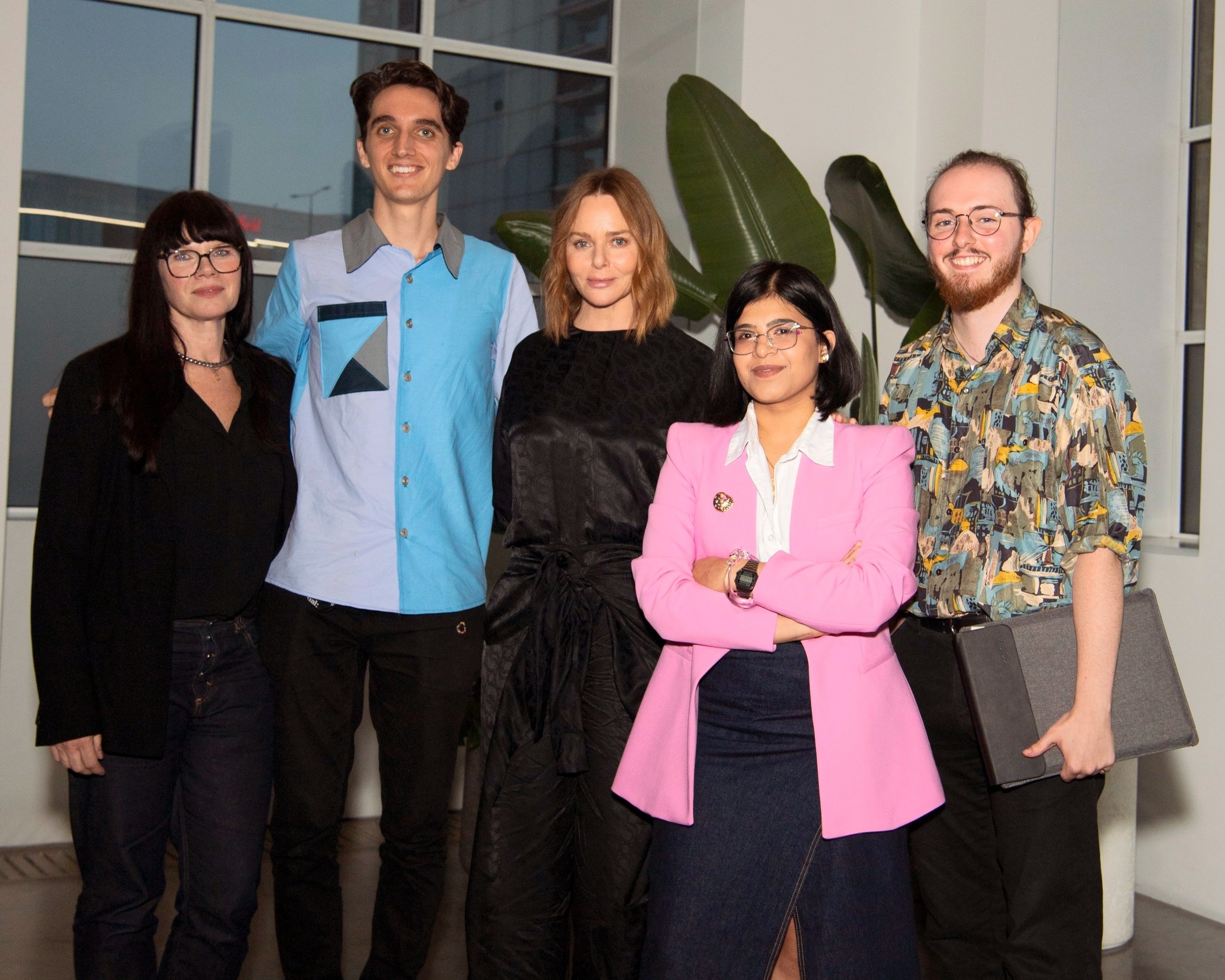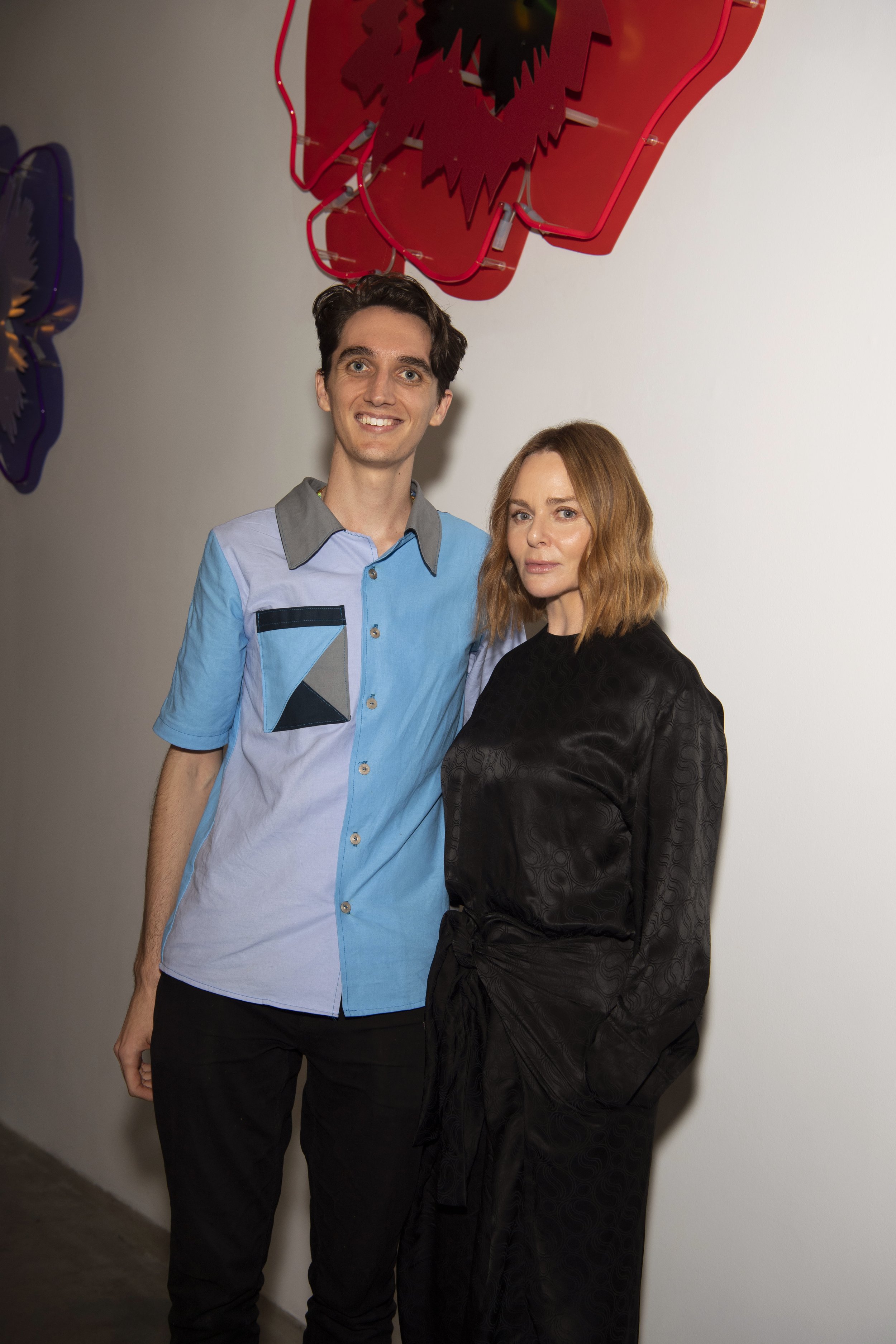Stella McCartney joins forces with CSM and Lenovo to nurture the next generation of sustainable designers.
Photo Courtesy of Lenovo.
"The future of technology and fashion is making sustainable fashion stand shoulder to shoulder with dirty fashion." - Stella McCartney.
"Fashion is one of the most damaging industries to the environment", admits Stella McCartney, clad in a black blazer, wide-leg cargo-style trousers, and leather and PVC-look stilettos (which are, of course, neither leather nor plastic). Since its founding in 2001, McCartney's eponymous brand has become universally emblematic of the sustainable fashion movement, but as hard as she tries, she can't convert the industry alone. As such, over the past two months, McCartney expanded her vision to include nurturing the next generation's sustainable minds, in the form of a competition in partnership with Central Saint Martins and tech company Lenovo.
The competition saw 38 MA Design students across CSM's design courses challenged to develop a promising sustainable design solution, the winner of which would be awarded a three-month internship at the Stella McCartney offices and an internship at the Lenovo Design HQ in the US.
"It was really hard!" McCartney admits of choosing the winner from an office above her flagship store on Old Bond Street. The victor is Californian furniture design student Peter Nasielski, who gathered seaweed from a farm in Scotland and used an open-source recipe (and the Lenovo Yoga 9i) to create a bioplastic in the kitchen of his student flat.
Stella McCartney with winner Peter Nasielski. Photo Courtesy of Lenovo.
"His passion for the depth of the sustainability brief, I just really felt it," McCartney explains. "I liked that his work was weird and wonderful. And it pushed the needle out of our comfort zone. But at the same time, he'd worked in a way that I could see the materials getting into real life. And I know that you can source algae quite easily," she explains.
Downstairs in the store, aptly wallpapered with shredded and papier-mâchéd plans for previous collections, McCartney stands up to announce the winner. "I'm not gonna be cheesy and say you're all winners, 'cause you're not," she sardonically jibes, before congratulating Nasielski, to mass applause. The rest of the competitors are generously awarded an internship at Lenovo's North Carolina offices.
"We had direct input and feedback on our processes from both the Stella McCartney team and the team at Lenovo," Nasielski explains of the two-month process. And did he ever imagine going into fashion? "Not at all!" he says, before confessing his course leader had to urge him to go out and buy a suit jacket after deeming his outfit unfit for the occasion.
Like Nasielski's algae experiment, biomaterials make up a colossal part of McCartney's collections, from mycelium leather derived from mushrooms to spider silk. Their development is a complex form of science, so how involved is McCartney with the lab-heavy side of things? "I know 99% of what we're doing at all times," she insists. "We just had our last show in Paris. It was 93% sustainable, which blew my brain. And it's not greenwashing. We take so much time and energy to get to that number," she says, explaining that the company recently completed a program on Turkish farms focused on regenerative farming, a climate change-reversing form of farming that she heralds as "the future of our planet."
So what does McCartney — in addition to championing sustainability-focused youth — envision for the future of sustainable fashion? First up, democratization. "I hope it heads to a place where it can reach a price point that people can buy. I'm a solution-driven mind, and I'm hopeful. We try to swap out bad for good. We're not perfect because to try and make a change in the fashion industry; you have to be realistic. I can't charge £700,000 for my biodegradable suede shoes [just] because they're made to look like leather and patent when they're not. So there are many challenges", she admits.
But McCartney is undeterred, "I think the future of technology and fashion is making sustainable fashion stand shoulder to shoulder with dirty fashion. And it's all in the supply chain."

